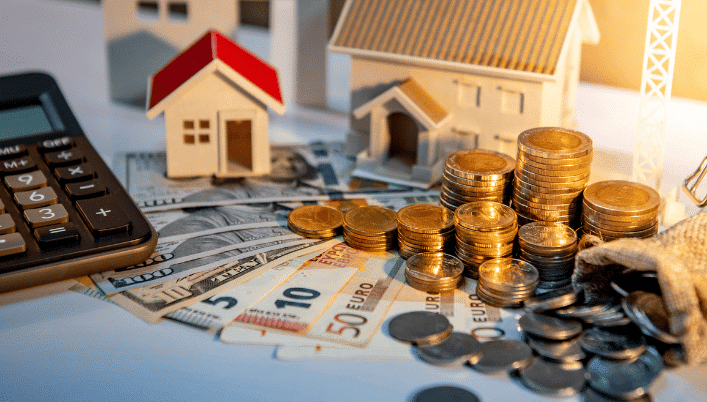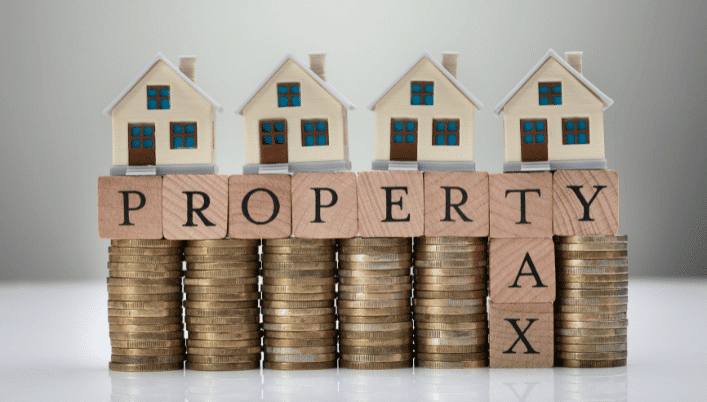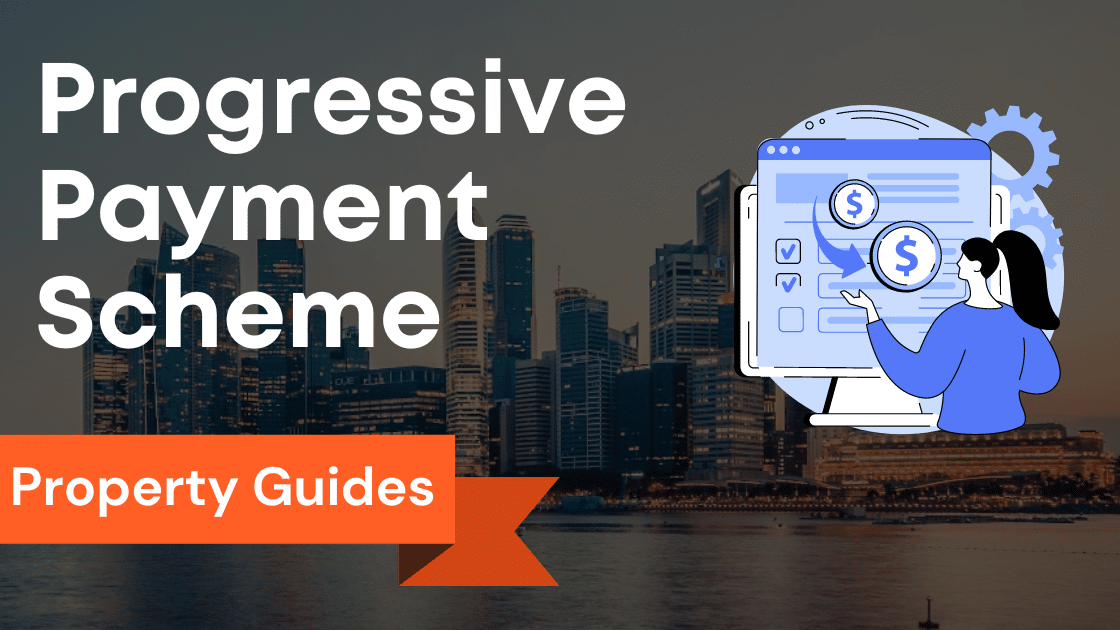
Embarking on a journey of property ownership beyond borders is a captivating endeavor that beckons even the most curious of minds.
As a Singaporean, the allure of investing in overseas property presents a tapestry of opportunities waiting to be woven.
Imagine the prospect of diversifying your portfolio, exploring uncharted economic territories, and reaping the rewards of potential capital appreciation.
Key Takeaways
- Types of Property Ownership: Different types of property ownership exist, including private properties and public housing (HDB flats) in Singapore. Private properties can be freely bought and sold, while HDB flats have specific eligibility conditions and ownership restrictions.
- Owning Property Overseas: Singaporeans are allowed to own property overseas for residential or investment purposes. Compliance with regulations and understanding foreign property ownership laws is essential.
- Regulations and Eligibility: Regulations for overseas property ownership vary by country. Singaporeans must research and adhere to specific rules in the chosen country. HDB flat owners are subject to certain regulations regarding overseas property ownership.
- Benefits and Risks: Investing in overseas property can diversify investment portfolios and offer potential capital appreciation and rental income. However, risks include property value fluctuations, political instability, and legal complexities.
- Choosing the Right Investment: Selecting the right overseas property involves considering location, market conditions, rental potential, developer reputation, and regulatory environment. Seek advice from experts in the specific region.
- HDB’s Role: HDB oversees overseas property ownership by flat owners. Accurate declaration of overseas property ownership is required, and HDB conducts checks for compliance.
- Renting Overseas Property: HDB flat owners can rent out their overseas properties. Rental income must be declared to relevant authorities, and tax obligations fulfilled.
- Appealing for Ownership: Appeals for overseas property ownership may be considered in specific cases, such as inheritance or properties purchased before becoming an HDB flat owner.
- Financial Considerations: Owning overseas property requires financial planning, considering costs, potential returns, and currency exchange rates. Financing options include bank loans and self-financing.
- Tax Implications: Singaporeans should understand tax obligations in both Singapore and the country of overseas property ownership, including property taxes and Stamp Duty.
Understanding the Basics of Property Ownership

What are the different types of property ownership?
There are different types of property ownership, including private properties and public housing.
In Singapore, public housing is primarily provided by the HDB, while private properties are developed by private developers.
Private properties are unrestricted in terms of ownership and can be bought and sold freely in the market.
On the other hand, public housing flats, commonly known as HDB flats, have certain eligibility conditions and ownership restrictions.
Can I own property overseas?
Yes, Singaporeans are allowed to own property overseas.
You can choose to purchase a property in a foreign country, whether for residential purposes or as an investment.
However, it is important to understand the regulations surrounding overseas property ownership in order to ensure compliance with the law.
What are the regulations surrounding overseas property ownership?
The regulations surrounding overseas property ownership can vary depending on the country in question.
It is important to research and understand the specific rules and requirements of the country where you wish to purchase a property.
In Singapore, HDB flat owners are subject to certain regulations when it comes to owning property overseas.
Navigating Overseas Property Investment for Singaporeans

What are the benefits of investing in overseas property?
Investing in overseas property can offer several benefits for Singaporeans.
It provides an opportunity for diversification of investment portfolios, as well as the potential for capital appreciation and rental income.
Additionally, owning property overseas may also serve as a way to secure residency or second citizenship, depending on the country’s immigration policies.
What are the risks associated with investing in overseas property?
While there are potential benefits to investing in overseas property, there are also inherent risks.
These risks include fluctuating property values, political instability, currency exchange rate fluctuations, and legal complexities.
It is important for Singaporeans to conduct thorough research and due diligence before making any investment decisions.
How do I choose the right overseas property investment?
Choosing the right overseas property investment requires careful consideration of various factors.
These factors include the location, market conditions, rental potential, developer reputation, and regulatory environment.
It is advisable to seek professional advice from real estate agents and property consultants who have expertise in the specific country or region you are interested in.
The Appeal of Overseas Property: Exploring HDB’s Role

What is HDB’s view on overseas property ownership?
The HDB adopts different approaches when it comes to overseas property ownership.
While it is generally allowed, HDB flat owners are required to declare their overseas properties to the HDB.
This is to ensure transparency and compliance with the regulations set by the public housing authority.
How does HDB handle overseas property owners?
HDB handles overseas property owners by checking on their compliance with the regulations.
HDB conducts regular checks to ascertain if HDB flat owners are in compliance with the rules pertaining to overseas property ownership.
It is important for HDB flat owners to be aware of their obligations and to provide accurate information to HDB.
Can I rent out my overseas property if I own a HDB flat?
If you own a HDB flat and also own an overseas property, you are generally allowed to rent out your overseas property.
However, it is important to note that rental income from overseas property should be declared to the relevant authorities in Singapore, and any income tax obligations should be fulfilled.
Exploring HDB Appeals for Overseas Property Ownership – Appealing with HDB

What are the circumstances under which HDB allows overseas property ownership?
HDB allows overseas property ownership in certain circumstances.
For example, if the overseas property was inherited, HDB may grant approval for the ownership.
Additionally, if the overseas property was purchased before the applicant became a HDB flat owner, an appeal may be considered.
How can I appeal to HDB for overseas property ownership?
If you wish to appeal to HDB for overseas property ownership, you will need to provide relevant documentation and justification for your appeal.
This may include supporting documents such as purchase agreements, proof of inheritance, or other relevant information that demonstrates the need for overseas property ownership.
What documentation do I need to provide for an HDB appeal?
When appealing to HDB for overseas property ownership, you will typically need to provide documentation such as a copy of the purchase agreement, proof of inheritance, or any other relevant documents that support your appeal.
It is important to ensure that the documents provided are authentic and accurate.
Buying Your Dream Property Abroad: A Comprehensive Guide

What are the important factors to consider when buying property abroad?
There are several important factors to consider when buying property abroad.
These include the location, legal framework, financial considerations, rental potential, existing infrastructure, and accessibility.
It is advisable to conduct thorough research and seek professional advice before making any investment decisions.
How do I search for overseas properties?
There are various ways to search for overseas properties.
You can engage the services of a real estate agent who specializes in international properties or use online property portals that cater to the global market.
It is important to narrow down your search based on your preferences and requirements.
What are the steps involved in purchasing an overseas property?
The steps involved in purchasing an overseas property can vary depending on the country and its regulations.
Generally, the process involves property search and selection, due diligence, negotiation, legal documentation, payment, and property transfer.
It is important to engage professionals such as lawyers and property agents to guide you through the process.
Property Ownership for Singaporeans: Overseas Ventures Unveiled

Eligibility criteria for Singaporeans investing in overseas properties
Singapore citizens (SC) who are interested in owning residential properties overseas need to meet certain eligibility criteria.
These criteria include income and financial requirements, as well as types of eligibility schemes and grants available for potential investors.
It is essential for Singaporeans to assess their own financial capabilities and understand the obligations that come with owning and maintaining a property abroad.
Potential challenges in owning property overseas for Singaporeans
Investing in foreign properties can come with its fair share of challenges.
One of the main challenges is the financial commitment involved.
Buyers need to assess their monthly income and ensure that they can afford the costs associated with owning a property in Singapore or overseas.
Additionally, there are considerations for Singaporeans who already own additional properties in Singapore, as it may affect their eligibility for certain grants or schemes.
The impact of owning overseas property on HDB flat ownership
Singaporeans who own a Housing Development Board (HDB) flat need to understand the implications of owning additional properties overseas.
HDB has regulations and policies in place regarding private property ownership, and it is important for Singaporeans to comply with these regulations.
Failure to do so may result in consequences and penalties, such as false declaration of overseas property ownership.
It is advisable to seek professional financial advice and consult experienced property agents to navigate through the process smoothly.
Overseas Property Investment: A Practical Approach for Singaporean Buyers

Guidelines for purchasing overseas property as a Singapore citizen
If you are a Singaporean citizen looking to buy property overseas, it is crucial to follow certain guidelines.
First and foremost, conduct thorough research on the property market in the desired location.
This includes understanding the local laws and regulations, which may be different from those in Singapore.
It is also important to engage the services of an experienced property agent who specializes in overseas properties.
They can provide valuable insights and help you navigate through the purchasing process.
Financing options for buying property overseas
Financing is a key consideration when investing in foreign properties.
Singaporeans have the option to use their savings, cash, or bank loans to fund the purchase.
It is advisable to assess your financial capabilities and carefully consider the risks associated with each financing option.
Banks can provide mortgage options for overseas property purchases, but it is important to understand the terms and conditions, as well as any additional costs involved.
Risks and considerations when investing in foreign properties
Investing in foreign properties carries its own set of risks and considerations.
It is essential to consider factors such as political stability, economic conditions, and potential fluctuations in property values.
Additionally, investors should familiarize themselves with local property taxes, stamp duties, and other associated costs.
Engaging the services of a qualified property agent will ensure that you are well informed and equipped to make an informed decision.
HDB Flat Owners’ Guide to Owning Property Overseas
Steps to take when planning to buy an overseas property as an HDB flat owner
HDB flat owners who are interested in purchasing an overseas property need to take certain steps.
First, they should dispose of their private property, if any, as HDB flat owners are not allowed to own additional properties in Singapore.
Next, they can begin the process of buying overseas property by researching the market, engaging a property agent, and exploring financing options.
It is important to plan and manage the transition between owning an HDB flat and property overseas.
Understanding the resale process for HDB flats to fund the overseas property purchase
HDB flat owners may choose to sell their flats to finance the purchase of an overseas property.
This process involves listing the flat for resale, engaging a property agent, and completing the necessary paperwork.
It is important to consider factors such as the resale process timeline, property agent commission, and potential costs involved in preparing the flat for resale.
Proper planning and understanding of the process will ensure a smooth transition to owning property overseas.
Applying for a bank loan and managing the costs of owning both an HDB flat and overseas property
Financing plays a crucial role in managing the costs of owning both an HDB flat and an overseas property.
HDB flat owners can explore bank loan options to fund their overseas property purchases.
However, it is important to assess the financial commitments, including monthly mortgage payments and associated costs.
Proper financial planning and budgeting will help ensure that the investment in the overseas property does not strain the finances of the HDB flat owner.
The Housing & Development Board’s Perspective on Overseas Property Ownership
HDB’s regulations and policies regarding the ownership of overseas properties
The Housing & Development Board (HDB) has regulations and policies in place to govern the ownership of overseas properties by Singaporeans.
It is important for Singapore citizens to comply with these regulations, which include factors such as the disposal of private property before purchasing an overseas property.
The HDB monitors and verifies overseas property ownership to ensure compliance with the regulations.
The role of HDB in monitoring and verifying overseas property ownership
The HDB plays a crucial role in monitoring and verifying overseas property ownership by Singaporeans.
They conduct checks to ensure that HDB flat owners are complying with the regulations and policies regarding private property ownership.
It is important for Singapore citizens to provide accurate and truthful information to the HDB to avoid any penalties or consequences associated with false declaration of overseas property ownership.
Consequences and penalties for false declaration of overseas property ownership
False declaration of overseas property ownership can have serious consequences and penalties.
Singapore citizens who provide inaccurate information to the HDB may face legal actions and have their HDB flat ownership affected.
It is important to be transparent and truthful when declaring overseas property ownership to avoid any legal repercussions.
Eligibility Conditions for Singaporeans Investing in Overseas Properties
Income and financial requirements for Singaporeans interested in owning overseas properties
Singaporeans who are interested in owning residential properties overseas need to meet certain income and financial requirements.
These requirements ensure that potential investors have the financial capability to support the purchase and maintenance of the property.
It is important for Singaporeans to assess their own financial situation and seek financial advice if needed.
Types of eligibility schemes and grants available for Singaporeans investing in foreign properties
There are various eligibility schemes and grants available for Singaporeans investing in foreign properties.
These schemes aim to support Singapore citizens in their overseas property ventures.
It is important to understand the criteria and requirements for each scheme or grant and assess whether they align with your investment goals and financial capabilities.
Important considerations for Singaporeans who already own additional properties in Singapore
Singaporeans who already own additional properties in Singapore need to consider the implications of owning overseas properties.
Additional properties in Singapore may affect eligibility for certain grants or schemes related to overseas property ownership.
It is advisable to seek professional advice and consult relevant authorities to fully understand the impact of existing property ownership on the eligibility and financial obligations of owning foreign properties.
Exploring Private Property Ownership Abroad: Tips for Singaporeans
Understanding the Process of Buying Overseas Property
Buying property overseas involves several steps and considerations for Singaporeans.
It is essential to research the legal framework, property market trends, and local regulations in the country of interest.
Engaging professional advisors, such as lawyers and real estate agents, who are familiar with overseas property transactions can provide valuable guidance throughout the process.
A key consideration is financing the overseas property purchase.
Singaporeans may explore various financing options, including self-financing, mortgage loans from local or international banks, or seeking assistance from financial institutions that specialize in overseas property investments.
Evaluating the risks associated with currency exchange rates and securing adequate insurance coverage are also important in mitigating potential financial risks.
Considerations for Singaporeans Buying Property Abroad
When purchasing property abroad, Singaporeans should carefully consider their long-term plans and objectives.
It is crucial to assess the potential benefits and challenges of owning property overseas.
Benefits may include diversification of assets, potential capital appreciation, and rental income opportunities.
On the other hand, challenges can arise from managing the property remotely, dealing with unfamiliar legal systems, and maintaining the property’s condition.
Another important factor to consider is the tax implications of owning overseas property.
Singaporeans should be aware of the tax obligations in both Singapore and the country where the property is located.
Understanding the property tax payable, Stamp Duty and any other applicable taxes will help in financial planning and compliance with tax regulations.
Legal and Financial Implications of Owning Property Overseas
As a Singaporean citizen, owning property overseas does not impact the eligibility to buy a HDB resale flat locally.
However, there are certain rules and restrictions that need to be considered.
According to the Minister for National Development, Singaporeans who purchase an HDB resale flat on or after Aug 30, 2010, must dispose of their private property within six months of the HDB purchase.
This measure aims to ensure that public housing remains affordable and accessible to Singaporean families.
HDB checks both locally and overseas to ascertain compliance with the resale regulations.
This means that Singaporean HDB flat buyers are required to declare their private property ownership in different countries.
The details provided will be verified by HDB, and failure to comply with the regulations may lead to penalties or even the cancellation of the HDB flat purchase.
Exploring Property Overseas: A Guide for Singaporean Citizens
Benefits and Challenges of Owning Property Overseas
Owning property abroad can offer Singaporeans various benefits.
It allows for geographical diversification of their assets and potentially brings in additional income through rental returns or capital gains.
Furthermore, some overseas markets may present opportunities for higher returns on investment compared to the local market.
However, owning property overseas also presents challenges that Singaporeans should consider.
These challenges include managing the property from a distance, understanding and complying with local laws and regulations, and dealing with any potential language barriers or cultural differences.
Guidelines for Purchasing Property Abroad
When purchasing property abroad, it is important for Singaporeans to conduct thorough research and due diligence.
These guidelines can help Singaporean citizens navigate the process:
- Research the local property market: Understand the current market conditions, property trends, and potential risks in the country of interest.
- Engage local professionals: Seek guidance from local lawyers, real estate agents, or property consultants who are familiar with the local market and legal processes.
- Calculate the financial implications: Consider the total costs involved in purchasing the property, including legal fees, taxes, renovation costs, and ongoing maintenance expenses.
- Understand local laws and regulations: Familiarize yourself with the local property laws, ownership restrictions for foreigners, and any additional regulations that may apply.
- Visit the property: Whenever possible, visit the property in person or arrange for a trusted representative to inspect the property on your behalf.
- Seek professional advice: Consult financial advisors or tax professionals to understand the tax implications in both Singapore and the country where the property is located.
How to Declare Overseas Property to HDB
When purchasing property overseas, Singaporean citizens are required to declare their overseas property ownership to HDB.
This declaration is essential for HDB to ensure compliance with the resale regulations and to determine eligibility for HDB financing schemes and grants.
Singaporeans are advised to submit the necessary documentation, such as the purchase agreement, valuation report, and proof of property ownership, to HDB within the stipulated timeline.
HDB will review the documents and conduct the necessary checks to verify the accuracy of the information provided.
Unlocking the Potential: Singaporeans and Overseas Property Ownership
Exploring Investment Opportunities in Overseas Property
Investing in overseas property can be an attractive investment asset for Singaporeans.
It provides an opportunity to diversify investment portfolios and potentially gain exposure to different property markets, economic cycles, and growth prospects.
However, it is essential for Singaporeans to evaluate the market conditions, conduct due diligence, and seek professional advice before making investment decisions.
Financial Considerations for Singaporeans Investing in Overseas Property
Financial planning is crucial when investing in overseas property.
Singaporeans should consider factors such as currency exchange rates, mortgage financing options, and potential rental income.
They should also assess the impact of property taxes payable in the respective country and any tax treaties between Singapore and the country of investment.
Seeking advice from financial experts can help in making informed investment decisions.
Managing and Maintaining Overseas Property as a Singaporean
Managing and maintaining overseas property remotely can be challenging for Singaporean owners.
It is important to engage reliable property management companies or agents who can oversee property maintenance, rental collection, and tenant management.
Regular communication and periodic visits to the property can also help in ensuring its upkeep and addressing any issues that may arise.
Overseas Property Investment: HDB’s Development Board Insights
Overview of HDB’s Policies on Overseas Property Ownership
HDB has set certain policies and guidelines to regulate Singaporean citizens’ ownership of overseas property.
These policies are in place to ensure that public housing remains affordable and accessible to Singaporean families and to prevent property speculation.
Under HDB’s regulations, Singaporeans who own private property within six months of the HDB purchase must dispose of their private property.
Failure to comply with this regulation may result in penalties or the cancellation of the HDB flat purchase.
Requirements for Singaporeans to Buy Property Overseas
As Singaporean citizens, there are no legal restrictions preventing them from buying property overseas.
However, it is important for Singaporeans to comply with the regulations and tax obligations in both Singapore and the country where the property is located.
This includes fulfilling any visa requirements for property ownership and abiding by local laws and regulations.
How HDB Monitors Overseas Property Ownership
As part of its role in overseeing the resale of HDB flats, HDB checks for the ownership of private property by Singaporean citizens both locally and overseas.
Singaporeans are required to declare their overseas property ownership to HDB, providing the necessary documentation for verification purposes.
By doing so, HDB ensures compliance with the resale regulations and safeguards the affordability of HDB flats.
Enhancing Financial Commitments: Overseas Property Investment for Singaporeans
Financial Planning for Singaporeans Buying Property Abroad
Financial planning is crucial for Singaporeans considering overseas property investment.
It is important to assess the affordability of the investment, the impact on cash flow, and the implications of foreign exchange rates.
Singaporeans should also consider factors such as rental potential, property management fees, and loan repayments when making financial commitments.
Tax Implications of Owning Overseas Property
Owning overseas property can have tax implications in both Singapore and the country where the property is located.
Singaporeans should be aware of the property tax payable, Stamp Duty, and any other taxes applicable to their overseas property.
Seeking advice from tax professionals can help in understanding tax obligations and optimizing tax planning strategies.
Support and Assistance Provided by HDB for Overseas Property Owners
HDB provides support and assistance to Singaporean citizens who own overseas property.
This includes providing information and guidelines on the regulations and requirements for overseas property ownership.
Singaporeans can also seek clarification or assistance from HDB if they encounter any issues or challenges.
Conclusion
Are you a Singaporean citizen looking to explore the world of overseas property ownership? Get ready to embark on a thrilling journey of diversification, investment, and potential growth.
With the guidance of this comprehensive guide, you’ll navigate the intricate landscape of international real estate with confidence and strategic insight.
Dive into the Benefits: Diversification and Growth
Unlock the potential of your investment portfolio by venturing into overseas property ownership.
Gain exposure to new markets, economic cycles, and growth prospects that could elevate your financial strategy.
From lucrative rental income opportunities to potential capital appreciation, owning property abroad can be a game-changer for your wealth-building endeavors.
Navigate the Challenges: Strategy and Due Diligence
As you tread into uncharted territory, be prepared to face challenges head-on.
Our guide equips you with the knowledge to conduct thorough research, understand legal frameworks, and comply with regulations.
Whether it’s managing properties from a distance, grasping unfamiliar laws, or overcoming cultural nuances, you’ll be well-prepared to handle the complexities that come with owning property overseas.
Insights from the Experts: Professional Advice
Gain an edge with insights from seasoned professionals who specialize in overseas property transactions.
Engage trusted real estate agents and legal experts who are well-versed in the local market dynamics.
Their guidance will illuminate your path, ensuring that every decision you make aligns with your investment goals and financial capabilities.
Harmonize Your Finances: Budgeting and Tax Planning
Your financial well-being is paramount in this journey.
Delve into strategic financial planning that encompasses currency exchange rates, mortgage options, and property taxes.
Learn to navigate the tax implications in both Singapore and your chosen destination, paving the way for a solid financial strategy that safeguards your investment.
Declare and Thrive: HDB Compliance and Transparency
For HDB flat owners, transparency is key.
Understand the regulations and policies set by the Housing & Development Board (HDB) regarding overseas property ownership.
Learn how to declare your overseas properties accurately and adhere to the regulations, ensuring a seamless alignment between your investments and your HDB flat ownership.
Embark on a voyage of discovery, growth, and financial mastery as you venture into the world of overseas property ownership.
With our guide in hand, you’ll be empowered to make informed decisions, maximize opportunities, and navigate the global real estate landscape with finesse.
Your investment journey starts here – get ready to seize the world of overseas property ownership by storm!
Frequently Asked Questions
Q: How can I check my overseas property with HDB?
Q: What are the approaches to check on private property ownership?
This is to ensure compliance with the community guidelines and standards.
Q: Can I buy a HDB if I already own an overseas property?
However, there are certain conditions and eligibility criteria that you need to meet.
Q: Are there any restrictions on foreign owners buying a HDB?
Foreigners can only purchase resale HDB flats and not new ones.
Q: Who are considered essential occupiers in a HDB flat?
This includes the owners themselves, their immediate family members, and certain other approved occupiers.
Q: Why is it important to disclose overseas property ownership when buying a resale HDB flat?
Failure to disclose such information can lead to legal consequences.
Q: How does the authority check on private property ownership?
This is done to ensure that there are no false declarations made by buyers.
Q: Can I be held liable for false declarations regarding my overseas property?
It is important to provide accurate and truthful information during the resale flat purchase process.
Q: What should I do if I want to buy a HDB flat but already own an overseas property?
They will guide you on the necessary steps to proceed.
Q: Can I buy a HDB flat if I am a Singaporean living overseas?
However, there may be additional considerations and requirements in such cases, which you should discuss with HDB.












